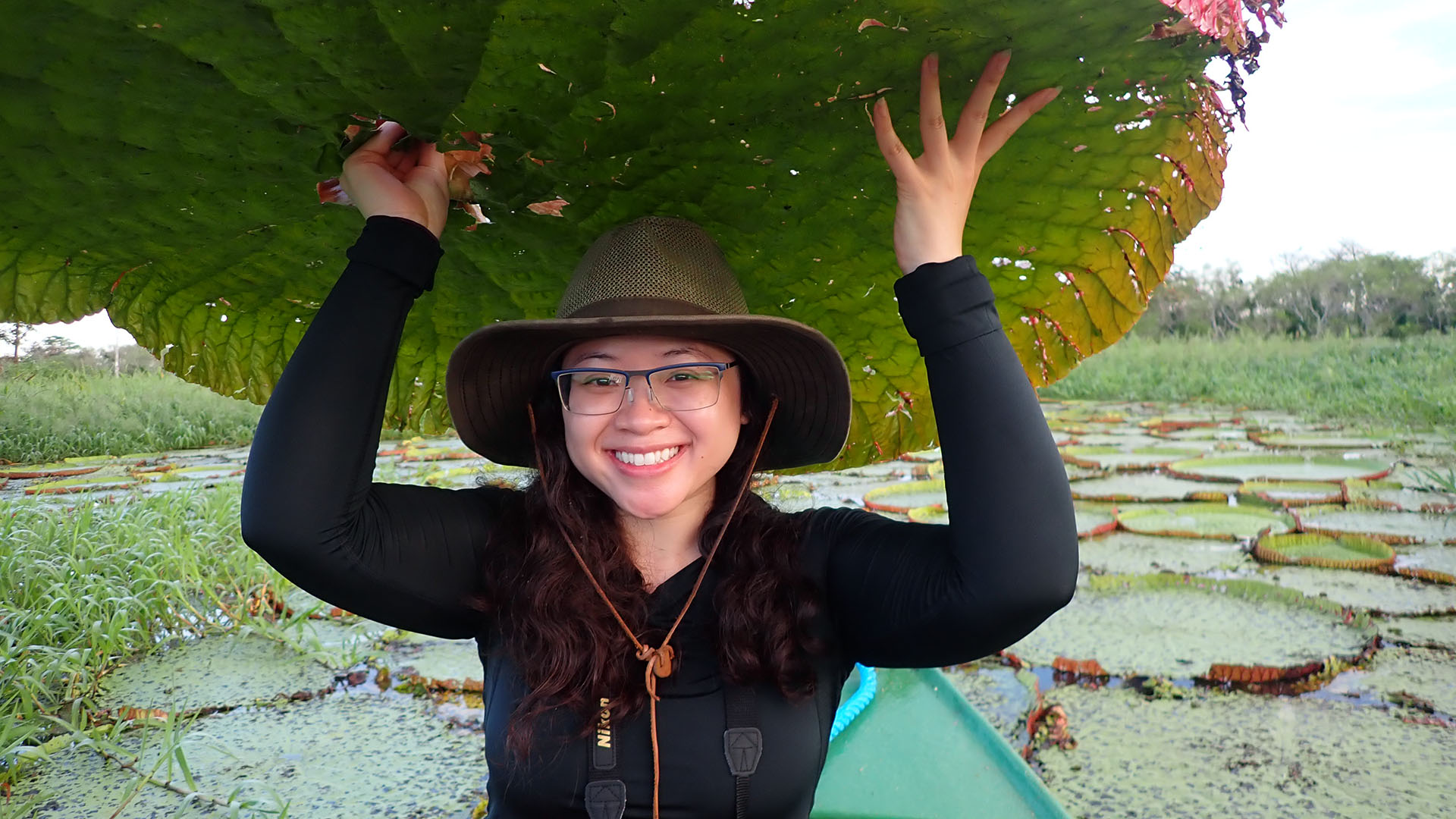- Future Students
- How to Apply
- Visit UHCL
- Admitted Students
- Tuition, Costs and Aid
- Degrees and Programs
- Contact Admissions
- Current Students
- Class Schedule
- Academic Calendar
- Advising
- Events
- Library
- Academic Resources and Support
- Student Services and Resources
- Alumni
- Lifetime Membership
- Alumni Events
- Update Your information
- Awards and Recognitions
- Give to UHCL
Welcome to the jungle! Students travel to Amazon, study wildlife, ecology, human impact
July 11, 2022 | UHCL Staff

Students studying environmental science or biology at University of Houston-Clear Lake traveled to the Amazon River in Manaus, Brazil to explore the region and learn about the largest, most species-rich tract of tropical rainforest on the planet.
Professor of Biology and Environmental Science Cindy Howard, who has led over 50 groups of UH-Clear Lake students to study the Amazon over the last 30 years, said trips were planned around the interests of the group. "Students will be studying ecology and human impact on the area," Howard said.
She explained that she and her students would live on a small Amazon river boat with a crew that would take them exploring. "We'll be based on the boat, but go every day to hike and explore," she said.
"Most students will be working on independent studies including wildlife observations of birds, reptiles, fish and mammals, learning scientific names, study where they're found and their habitats," she explained. "Each day, students fill out a checklist of what they saw, and at the end we'll have a list of all the species we found - usually over 200."
Cecilia-Tien Dao, a post-baccalaureate student working toward her Bachelor of Science in Biological Science, said one of the most memorable mornings involved finding water lilies on the river.
"What a start to our morning that day, catching the sunrise at 6 a.m. as we ventured out by canoe to the river to see the magnificent and famous Amazonian water lilies," Dao said. "It was our lucky day, as we were able to see a single, white water lily flower in full bloom. I got to hold a massive water lily pad, topside down, that was approximately 4 feet in diameter! The bright green delicate topside and the vibrant pink thorny underside were such wonderful visual surprises."
She added that among the giant lily pads, they were able to see two beautiful birds - the white-headed marsh tyrant and the wing-banded hornero.
Howard said students would also visit another part of the Amazon, the Rio Negro. "It's a big, blackwater tributary of the Amazon where the ecology is very different. Students study and compare the two areas," she said.
Any student, regardless of degree program, may apply to participate on a future research trip to the Amazon. Scholarships are available. For more information, go online.






